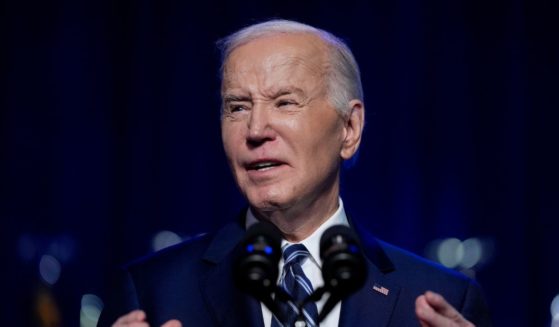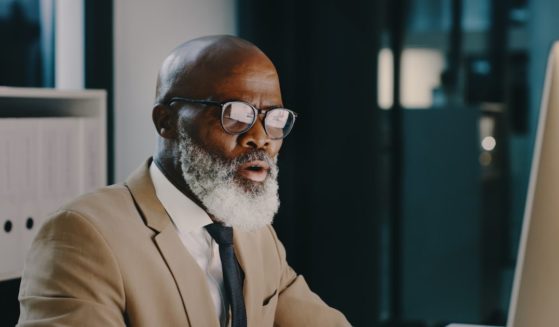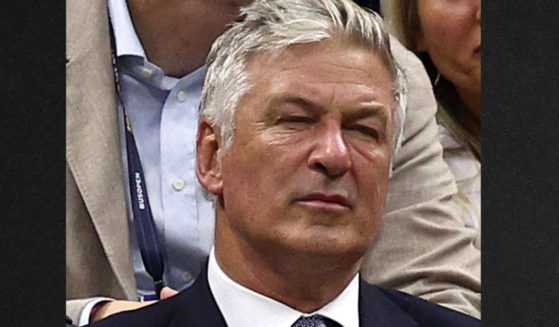Breaking: Court Hangs in the Balance After Lib Justice Stephen Breyer Makes Stunning Announcement
Liberal Supreme Court Justice Stephen Breyer is retiring, giving President Joe Biden an opening he has pledged to fill by naming the first black woman to the high court, two sources told The Associated Press on Wednesday.
Breyer, 83, has been a liberal yet pragmatic force within a court that has grown increasingly more conservative in recent years, trying to forge majorities with more moderate justices right and left of center.
The sources spoke on condition of anonymity, so as not to preempt Breyer’s eventual announcement. NBC first reported the justice’s plans.
Breyer has been a justice since 1994, appointed by then-President Bill Clinton. Along with the late Justice Ruth Bader Ginsburg, Breyer opted not to step down the last time the Democrats controlled the White House and the Senate during Barack Obama’s presidency.
Breyer’s departure, expected over the summer, won’t change the 6-3 conservative advantage on the court because his replacement will be nominated by Biden and almost certainly confirmed by a Senate where Democrats have the slimmest majority. It also will make conservative Justice Clarence Thomas the oldest member of the court. Thomas turns 74 in June.
Among the names being circulated as potential nominees are California Supreme Court Justice Leondra Kruger, U.S. Circuit Judge Ketanji Brown Jackson, prominent civil rights lawyer Sherrilyn Ifill and U.S. District Judge Michelle Childs, whom Biden has nominated to be an appeals court judge. Childs is a favorite of Democratic Rep. James Clyburn of South Carolina, who made a crucial endorsement of Biden just before South Carolina’s presidential primary in 2020.
Biden has been focused on filling federal judicial nominations with a more diverse group of judges, and the Supreme Court has not been a priority during his first year in office, according to White House aides and allies. A decision on a nominee has not been made yet, they said, and is expected to take a few weeks. But Biden has expanded his pool of applicants by naming more black women to the bench.
White House press secretary Jen Psaki said on Twitter: “It has always been the decision of any Supreme Court Justice if and when they decide to retire, and how they want to announce it, and that remains the case today. We have no additional details or information to share from @WhiteHouse.”
It has always been the decision of any Supreme Court Justice if and when they decide to retire, and how they want to announce it, and that remains the case today. We have no additional details or information to share from @WhiteHouse
— Jen Psaki (@PressSec) January 26, 2022
In more than 27 years on the court, Breyer has been an active and cheerful questioner during arguments, a frequent public speaker and quick with a joke — often at his own expense. He made a good-natured appearance on a humorous National Public Radio program in 2007, failing to answer obscure questions about pop stars.
He is known for his elaborate, at times far-fetched, hypothetical questions to lawyers during arguments, and he sometimes has had the air of an absent-minded professor. He taught antitrust law at Harvard earlier in his professional career.
He also spent time working for the late Sen. Edward Kennedy when the Massachusetts Democrat was chairman of the Senate Judiciary Committee. That experience, Breyer said, made him a firm believer in compromise.
His time working in the Senate led to his appointment by President Jimmy Carter as a federal appeals court judge in Boston, and he was confirmed with bipartisan support even after Carter’s defeat for re-election in 1980. Breyer served for 14 years on the 1st U.S. Circuit Court of Appeals before moving up to the Supreme Court.
His 87-9 high-court confirmation was the last with fewer than 10 dissenting votes.
Breyer’s opinions were notable because they never contained footnotes. He was warned off such a writing device by Arthur Goldberg, the Supreme Court justice for whom Breyer clerked as a young lawyer.
“It is an important point to make if you believe, as I do, that the major function of an opinion is to explain to the audience of readers why it is that the court has reached that decision,” Breyer once said. “It’s not to prove that you’re right. You can’t prove that your right; there is no such proof.”
Born in San Francisco, Breyer became an Eagle Scout as a teenager and began a stellar academic career at Stanford, graduating with highest honors. He attended Oxford, where he received first-class honors in philosophy, politics and economics.
Breyer then attended Harvard’ Law School, where he worked on the Law Review and graduated with highest honors.
Breyer’s first job after law school was as a law clerk to Goldberg. He then worked in the Justice Department’s antitrust division before splitting time as a Harvard law professor and a lawyer for the Senate Judiciary Committee.
Breyer and his wife, Joanna, a psychologist and daughter of the late British Conservative leader John Blakenham, have three children — daughters Chloe and Nell and a son, Michael — and six grandchildren.
The Western Journal has reviewed this Associated Press story and may have altered it prior to publication to ensure that it meets our editorial standards.
Truth and Accuracy
We are committed to truth and accuracy in all of our journalism. Read our editorial standards.












